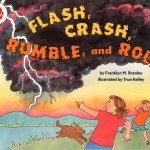
Readers & Thinkers: The 2014 Nobel Prize in Economics. Market Behavior and Remedies
Posted by ludw1086 on Oct 13, 2014 in Readers & Thinkers | Comments Off on Readers & Thinkers: The 2014 Nobel Prize in Economics. Market Behavior and RemediesDear All:
Well, who won?
The Nobel prize for economic sciences for 2014 was announced today, October 13, 2014. It went to Jean Tirole.
Tirole is 61 years old, born in France and Scientific Director at the Institut d’Economie Industrielle in Toulouse, France. Much of his key work was done while a professor at the Massachusetts Institute of Technology. He obtained his engineering degree from Ecole Polytechnique and his Ph.D. in economics from the Massachusetts Institute of Technology.
Tirole was expected to win the Nobel prize one day. He was a professor at MIT for many years and he attracted many students to MIT, including myself. Jean Tirole eventually left MIT for France to raise his kids.
So what did this guy do to make him so Noble?
The Nobel committee wrote that he received the prize “for his analysis of market power and regulation”.
Economists are interested in the factors that underlie the well-being of society. One of the goals of economists is to understand markets so as to make sure they function in a way that is best for the short and long term interests of people in those markets.
The way an industry is structured can often times have an influence on the outcomes for people. For example, if there is only one producer of electricity in your town (economists call this a monopoly), then the electricity producer could charge a very high price for electricity in the town. This would be bad because a more competitive system would lead to more electricity being produced and consumed at a cheaper price. The real world is much more complicated and there might exist a dominant producer in a single market, or a few dominant producers in a single market (economists call this an oligopoly), or there might exist perfect competition in one part of a market, but that market is effectively controlled by a monopolist in another part of that market.
A field of economics known as industrial organization studies and examines these types of markets in order to understand them and offer suggestions on how to improve them.
For example, suppose the government wanted to regulate the electricity producer. How would they do it in order to provide the best outcome for consumers and producers of electricity? The wrong government rules could lead to worst outcomes.
Jean Tirole spent much of his career developing the modern field of industrial organization. He also spent some time examining what regulatory schemes would work best and what schemes might not work at all. Tirole used lots of tools to study these interactions, including mechanism design theory, game theory, and contract theory.
For example, suppose a government agent wishes to create an incentive for the electricity company to price electricity closer to the competitive price, but doesn’t know anything about the electricity business. Tirole and others discussed how to construct contracts so that the firm had an incentive to reduce costs and charge prices closer to the competitive price even when the government had much less information than the producer. If the US adopted some of Tirole’s ideas in the telecommunications industry, phone pricing might be cheaper for US consumers, for instance.
His work also shed light on less obvious forms of monopoly power. For example, if a monopolist or oligopolist distributes its products to several competitive retail stores, the simple observation is that there is lot of competition at the retail level, and thus everything is fine with the market. Tirole expanded the study of how the supplying producer can dramatically affect outcomes at the competitive retail level and designed mechanisms for improving the market for consumers.
So what about the Nobel Choice?
Jean Tirole is an extremely talented and creative individual. His book The Theory of Industrial Organization is a beautiful book and I was lucky to have studied from it. Before Tirole’s book, most Industrial Organization books looked like novels. Tirole summarized and quantified the discipline in an elegant manner. In fact, some economists believe that his award was really a “life-time achievement award” in this field and that the Nobel committee twisted the emphasis of the award towards his work on regulation.
Tirole is also the co-author of another famous graduate textbook called Game Theory.
Tirole is also a hard worker. I remember being impressed by one particular story. I was walking by the desk of his secretary and saw a stack of hand written notes with mathematical equations and asked her what it was. She said, “It’s Jean. He wrote up this new theory last night and asked me to type it up in LaTEX.” For those who don’t know, LaTEX is a complex mathematical editing software. I’m still not sure if I was more impressed by Tirole or the skill quality of that MIT secretary.
So is that it?
It should always be remembered that even though Tirole is an amazing theoretician, there are a vast number of great economists that ran along with him during this entire journey. Some of them were Oliver Hart, Drew Fudenberg, Avinash Dixit, Roland Benabou, and most importantly Jean-Jacques Laffont.
I spoke to one of his successful students this morning and he said “I’m thrilled.”
A leading game theorist at MIT, Glenn Ellison, told me “He played a huge role in the development of the modern field of industrial organization. Tirole was one of several leading figures as the field transformed in the early 1980’s with the adoption of game theoretic tools, and he has continued to shape the field with a large number of contributions over the last 30 years.”
For more information on the winner:
http://www.nobelprize.org/nobel_prizes/economic-sciences/laureates/2014/press.html
Congratulations to Tirole, his pursuit of knowledge, and the armies of other researchers who walked with him.
Enjoy!
Ludwig
P.S. Feel free to email me your thoughts and indicate whether you wish them to remain anonymous or not.
October 13, 2014






